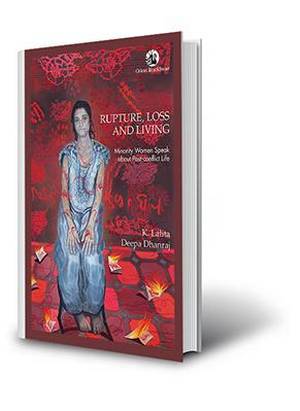xxxxxxxxxx
An oral history of marginalised Muslim women’s narratives
How does violence, communal or otherwise, impact ordinary people? What happens after the conflict, when the spotlight shifts elsewhere? How do victims pick up the pieces? Now direct all these questions at marginalised groups, especially poorer women, who anyways live in areas of darkness. What could have been their experience? Between 2006 and 2009 — after some of the worst communal clashes our country had seen — a scholar and a film-maker/researcher decided to investigate. Working with local researchers and activists in Mumbai, Hyderabad, and several cities of Gujarat, they began gathering stories from women survivors of collective violence.
K. Lalita and Deepa Dhanraj’s account is deeply disturbing, and this book of oral history is an important one on the narratives of marginalised Muslim women. As they write in the introduction, Lalita and Dhanraj documented life histories of 75 Muslim women survivors of communal violence, and present the stories of 19 of them divided into four thematic sections: I Began to See the World for What it is, Loss and Trauma, Negotiating Survival and Livelihood, and Claiming Accountability, Seeking Justice. Without going into issues like Muslim personal law, Islam, politics or the question of Muslim identity, the writers draw out experiences of violence these women had, “whether instigated or abetted by the state, communal, sexual, domestic or structural….”
For many of these women, “rupture manifested as complete displacement — physical, economic, domestic and emotional” — and they still live in a state of anguish, the experience too much to bear. For others “the loss of vatan (homeland)” is also the “loss of … community,” the loss of a sense of belonging to your birthplace. Add to this impoverishment, loss of income and identity — we hear of a woman in Mumbai who tells us her husband, a carpenter, lost his tools during a riot. Unable to invest in a new set, he became unemployed and depressed, and never recovered.
The stories of ordinary lives — their pain at losing their joy — stay with you. Just like Nobel Prize-winning writer Svetlana Alexievich’s oral history of the demise of communism, Second-Hand Time, where she recorded the voices of men and women rarely given an opportunity to speak. They didn’t speak of lofty ideals or politics, but of their daily lives, their joy and pain.









